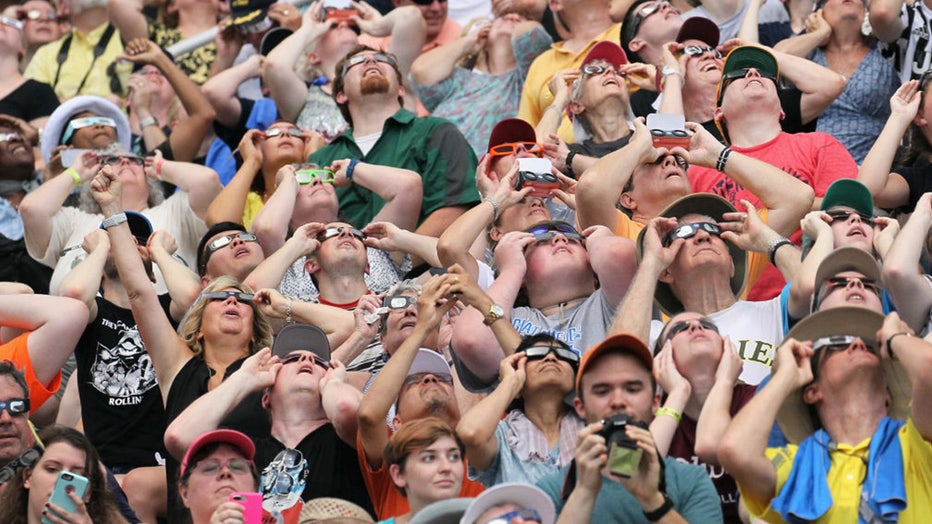Is looking at an eclipse bad for your eyes?

Eye protection for April's total solar eclipse
If you?re among the millions of people who will get the chance to witness April?s total solar eclipse, you?re going to want to use eye protection. Vitreoretinal surgeon at New York Eye and Ear Infirmary of Mount Sinai Dr. Avnish Deobhakta joined FOX Weather on Sunday to explain the dangers of viewing the eclipse without proper eye protection.
The total solar eclipse is set to take place on April 8 and it is expected that many people plan to view the highly-anticipated celestial event in person.
The path of totality during the April eclipse will be visible from Texas to Maine and an estimated 44 million people live within the 115-mile-wide path.
A celestial event such as this is a must-see, but how safe is it to actually see?
It is never recommended that you stare directly into the sun, but since this is a special event, it’s natural to wonder how safe it is to actually stare at a total solar eclipse.
RELATED: What to know about fake eclipse glasses
Permanent eye damage
The answer is, it’s not.
The American Academy of Ophthalmology advised that staring at the sun – partially covered or not – without any protective eyewear is dangerous.
"Staring at the sun for even a short time without wearing the right eye protection can damage your retina permanently. It can even cause blindness, called solar retinopathy," the AAO states.
Damage from solar retinopathy happens when a person stares at the sun for as little as a few seconds, according to the American Association for Pediatric Ophthalmology and Strabismus.
People who may suffer from solar retinopathy could have anywhere between mild to moderate loss of central vision and it can be permanent.
In some mild cases, solar retinopathy heals on its own. In more severe cases, the damage done to the eye can be irreversible and there is no proven treatment for solar retinopathy.
Dr. Avnish Deobhakta at Mount Sinai in New York recently discussed studying one woman who suffered permanent damage to the photoreceptors in her retinas from an eclipse.
"Those cells are the ones that are the most affected," he told FOX Weather. "In this case, for this patient, we were able to image how the rays of the sun actually created a burn in the shape of an eclipse directly onto the retina. It was actually in the shape of the eclipse of the shape that you would have seen in the sky."
The best way to avoid damage to your eyes is by using proper eyewear protection.

FILE - People watch the solar eclipse at Saluki Stadium on the campus of Southern Illinois University on August 21, 2017 in Carbondale, Illinois. (Scott Olson/Getty Images)
Eclipse glasses
The moment of totality during the eclipse in April will last only about four minutes so it is ill-advised to plan to watch it without using proper solar filters.
Solar filters are used in eclipse glasses and handheld viewers and meet a very specific worldwide standard known as ISO 12312-2.
If you are one of the lucky people who will be in the path of totality during the April eclipse, you must wear your eclipse glasses or have your handheld viewer in front of your eyes the entire time.
The only time when it is acceptable to remove the glasses or viewer is for those brief minutes when the moon is completely covering the sun, the American Astronomical Society (AAS) said.
As soon as the sun begins to reappear, you should put your protective eyewear back on.
For a list of verified eclipse glasses and viewers, click here.
Do eclipse glasses and handheld viewers expire?
No.
If you have purchased glasses or handheld viewers that comply with the ISO 12312-2 safety standard, and they are not damaged, they can be used indefinitely, according to the AAS.
This story was reported from Los Angeles.

